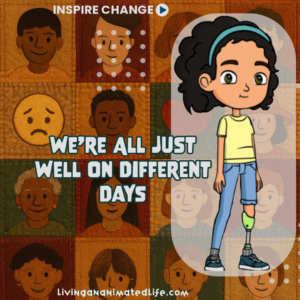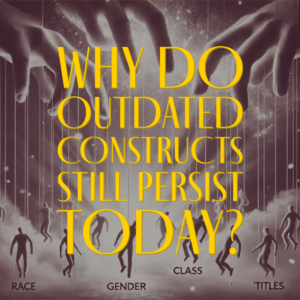Have you ever been in a situation where you’re opening up about something personal, only to have the conversation suddenly shift? 🤔 Perhaps someone jumps in with a story of their own, a similar experience they’ve been through. While they likely mean well, trying to show that they understand what you’re going through, it can feel like the conversation has been hijacked. 🚦 The focus is no longer on your feelings or your experience but on theirs. This shift can be unsettling, even frustrating, and it’s a prime example of how comparison is not the same as compassion.
The Difference Between Comparison and Compassion
Comparison and compassion are often mistaken for one another, especially in conversations where emotions run high. But the two couldn’t be more different. 🌱
Comparison involves measuring one person’s experience against another’s. ⚖️ When someone shares a personal story and another person responds with their own similar experience, it can feel like a comparison—even if that’s not the intent. This act of comparing can unintentionally create a sense of competition or diminish the original speaker’s experience. It’s as if the conversation becomes about who had it worse or who handled it better, which can leave the original speaker feeling unheard or invalidated. 🚫
Compassion, on the other hand, is about being present, truly listening, and understanding without judgment. 🫶 It’s about caring for another person’s feelings and experiences without needing to insert your own. Compassion focuses on the other person, offering them the space to be heard, validated, and supported. 🌟
The Unintended Consequences of “Hijacking” Conversations
When someone shares a story and another person quickly responds with a similar experience, it’s often done with good intentions. 💬 They’re trying to show empathy, to say, “I’ve been there too; I understand.” But this well-meaning response can sometimes backfire. 💥
The Impact on the Speaker: Imagine you’re sharing something deeply personal, and instead of receiving a compassionate response, the conversation shifts to someone else’s story. Even if the other person is trying to relate, it can feel like your experience is being overshadowed or dismissed. 😕 This shift can make the original speaker feel like their moment to be vulnerable and express their feelings has been taken away.
Examples of “Hijacking”: Consider the following scenario: A friend shares that they’ve been struggling with anxiety. 😔 Before they can even finish, someone else jumps in, saying, “Oh, I’ve had anxiety too! Let me tell you what happened to me.” While the intention might be to show solidarity, the focus is no longer on the original speaker’s experience. Instead, it’s shifted to the other person, leaving the original speaker feeling sidelined. 🚶♀️
How to Practice True Compassion in Conversations
So how can we ensure that we’re practicing compassion, not comparison, in our conversations? 🤗
Active Listening: The first step is to listen—really listen—without the immediate urge to respond with your own story. 👂 Let the other person share their feelings, their experience, and their thoughts without interruption. Sometimes, all they need is for someone to listen.
Empathy Without Comparison: Instead of responding with a similar experience, try expressing empathy directly related to what the other person is saying. 💞 Phrases like “That sounds really tough,” or “I’m here for you,” can validate the other person’s feelings without shifting the focus.
Supporting the Speaker: Offer your support by asking questions that allow the person to delve deeper into their experience. 🤝 You might ask, “How did that make you feel?” or “What can I do to help?” By focusing on the speaker’s needs, you ensure that the conversation remains centered on their experience. 🎯
Conclusion and Call to Action
In our desire to connect with others, it’s easy to fall into the trap of comparison, thinking that sharing our own similar experiences will help. But true compassion involves setting aside that urge and focusing entirely on the other person. 🧘♀️ It’s about giving them the space to be heard, understood, and supported without turning the conversation back to ourselves. 🌸
Call to Action: Next time you find yourself in a conversation where someone is sharing something personal, I challenge you to practice true compassion. 🌱 Listen actively, respond with empathy, and keep the focus on them. Let’s create conversations that uplift and honor each other’s experiences, fostering deeper connections and a more compassionate world. 🌍
Your words have the power to heal—let’s use them wisely. 💖








